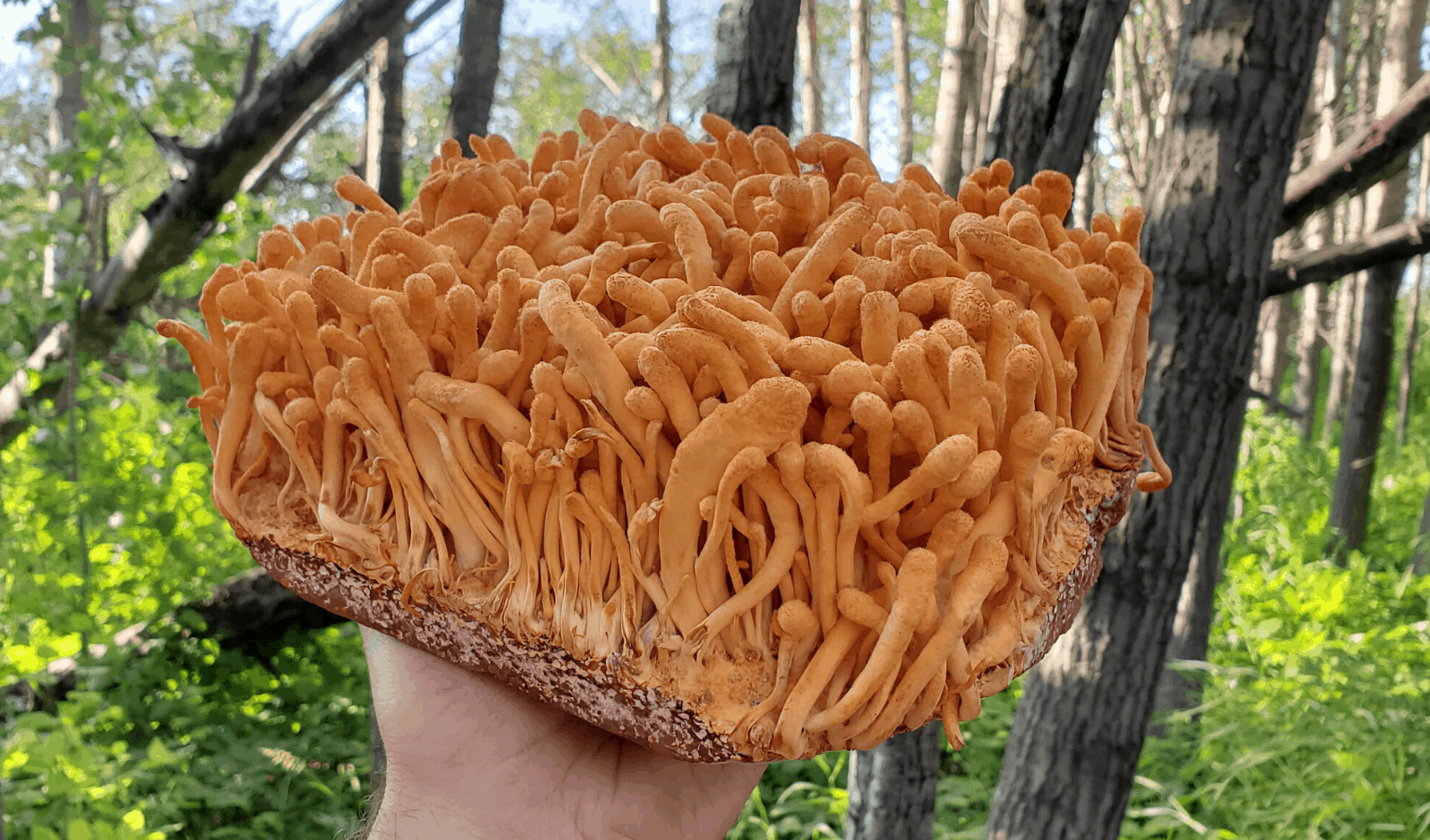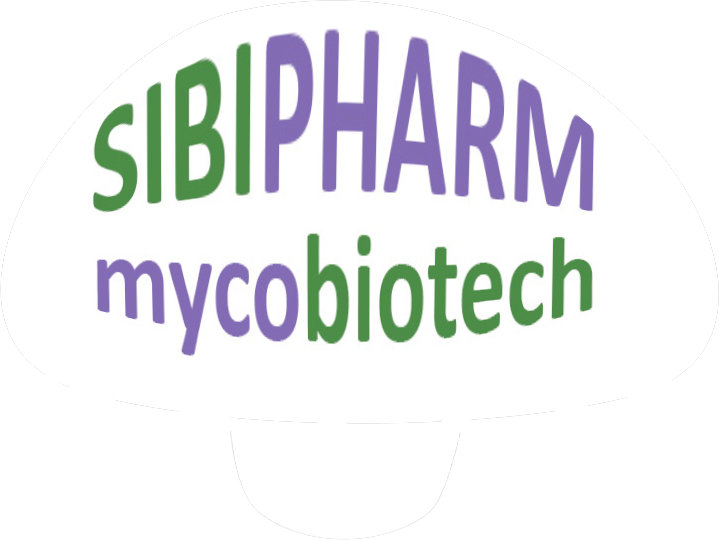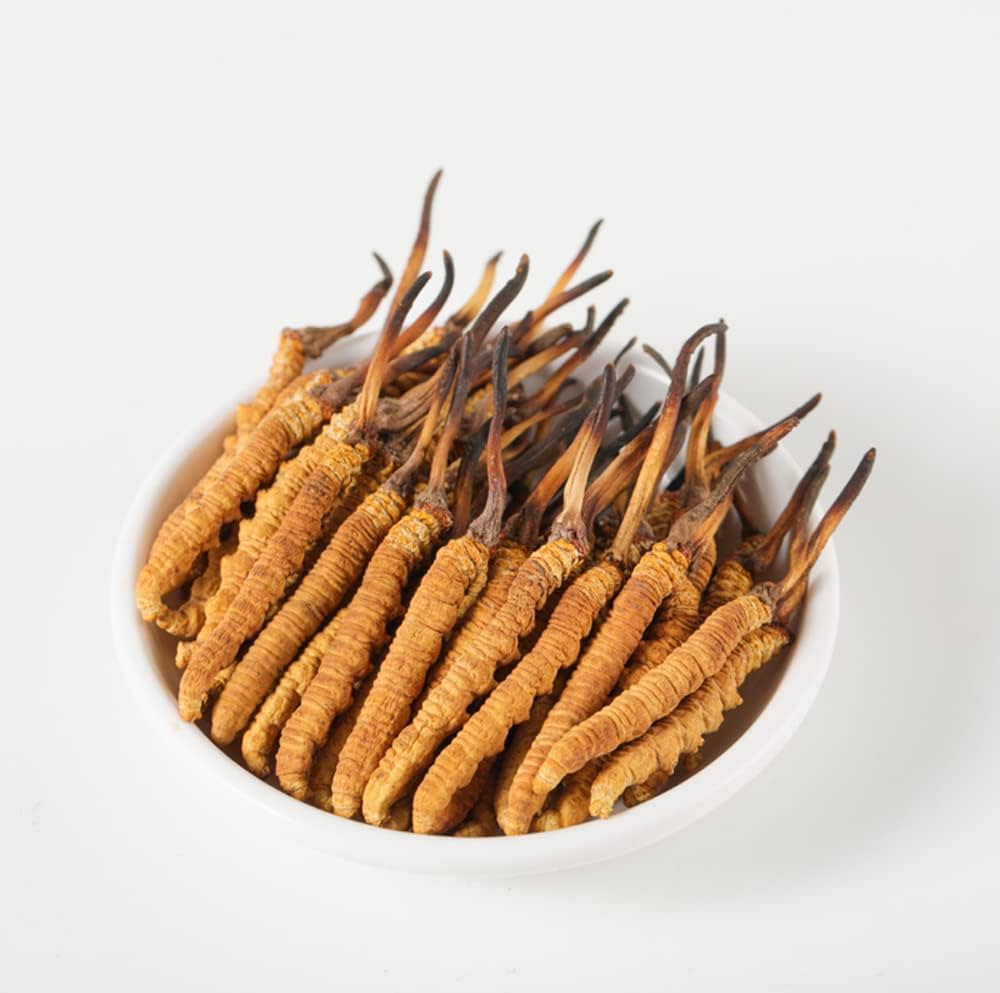Latin name: cordyceps militaris
Main uses of Cordyceps mushroom:
- Increased stamina and energy
- Improved respiratory system
- Support of immune function
- Reduction of inflammatory processes
- Antioxidant protection of the body
- Stimulation of ATP production
- Improvement of metabolism
- Support of cardiovascular health
- Support of kidney and liver function
- Regulation of hormonal levels
Description of Cordyceps mushroom:
Cordyceps is a genus of ascomycete fungi, which includes several species, the most famous of which is Cordyceps sinensis. This mushroom has a unique appearance: its fruiting body is a long, thin stem, often brown or orange in color. Cordyceps parasitizes insect larvae, such as caterpillars, which gives it a specific biological structure. In nature, it is found in the high mountain regions of Tibet, China and Nepal, where its collection is a labor-intensive and rare process. The mushroom grows at altitudes of over 3,500 meters above sea level, in harsh, low-oxygen conditions.

Cordyceps prefers cool, damp conditions and is often found in soils rich in organic matter. Its natural habitat makes it scarce and highly prized in the medicinal mushroom market. In addition to the highlands of Asia, artificial cultivation of Cordyceps in laboratories allows for greater access to this valuable resource.
History of the use of Cordyceps in medicine:
Cordyceps was first discovered by Tibetan herders who noticed that their herds of yaks became more energetic and fertile when they ate a certain type of mushroom. This incident attracted the attention of local healers, who began using Cordyceps in traditional medicine. In traditional Chinese medicine, Cordyceps has been used for over 1,500 years. It is known as the “winter worm – summer grass” due to its unique life cycle, which involves parasitizing insects. Cordyceps has been used to treat a variety of ailments, including respiratory problems, fatigue, decreased potency, and kidney disease. The Chinese imperial court prized Cordyceps for its powerful restorative and adaptogenic properties, considering it the secret to longevity and strength. In the 17th century, the mushroom was mentioned in several classical Chinese medical texts. With the spread of Eastern medicine in Europe and America in the 20th century, Cordyceps began to attract the attention of Western researchers. Modern biohackers and athletes often use Cordyceps to improve endurance, thanks to its effect on blood oxygen levels and energy metabolism.
Active ingredients in Cordyceps:
Cordyceps contains many bioactive compounds that determine its medicinal properties. One of the key components is cordycepin, a nucleoside compound that has antiviral, anti-inflammatory and antioxidant activity. Cordycepin plays an important role in modulating cellular processes such as apoptosis, cell division and energy metabolism. It also inhibits the growth of some tumors and can inhibit viral replication.
Another important compound is adenosine, which is involved in energy metabolism by influencing the production of ATP (adenosine triphosphate), the main energy carrier in cells. This makes Cordyceps attractive for improving endurance and reducing fatigue.
The polysaccharides contained in Cordyceps have an immunostimulatory and antioxidant effect. They help activate macrophages, which play a key role in protecting the body from infections. Polysaccharides also help protect cells from oxidative stress, which prevents damage to DNA and cell membranes.
Another important compound is mannitol, known for its diuretic properties. It helps regulate kidney function by removing excess fluid from the body and maintaining electrolyte balance.
Cordyceps also contains flavonoids, which have antioxidant and anti-inflammatory activity. These compounds protect the body from free radicals, reducing the risk of inflammation and chronic diseases.
Zinc and selenium, present in Cordyceps, also play a key role in supporting the immune system, normalizing hormonal levels, and protecting cells from oxidative stress.
Therapeutic effect for a biohacker from Cordyceps:
For biohackers, Cordyceps is of particular interest due to its unique effect on the body and many positive effects. One of the main aspects of using Cordyceps is increasing overall endurance and improving energy metabolism. Scientists have shown that Cordyceps stimulates ATP production, which directly affects the body’s ability to use oxygen and nutrients more efficiently. This is especially important for biohackers looking to optimize physical and mental performance.
Using Cordyceps can significantly improve respiratory function by increasing blood oxygen saturation and facilitating the transfer of oxygen to tissues. For biohackers, this could mean increased physical performance and improved recovery after intense workouts. In addition, Cordyceps is known for its ability to stimulate the immune system, helping the body fight infections and viruses more effectively. This property is especially important for those looking for ways to strengthen the body’s defenses under stress and active lifestyles.
Studies have shown that Cordyceps has antioxidant properties, which helps protect the body’s cells from damage caused by free radicals. For biohackers, this means slowing down the aging process and keeping the body youthful. Cordyceps also helps reduce inflammation in the body, which helps prevent the development of chronic diseases and improves overall well-being. Cordyceps is also interesting for cognitive function. It improves blood flow to the brain and supports neuroplasticity, which helps improve memory, attention, and learning. Biohackers can use these properties to improve mental alertness and concentration. Cordyceps also has a positive effect on the hormonal system, helping to restore the balance between cortisol and other stress hormones. This can help reduce chronic fatigue and improve sleep quality, which is essential for biohackers looking to maximize their performance.
Disclaimer:
The information provided in this article is for educational and informational purposes only. It is not intended as a substitute for professional medical advice, diagnosis, or treatment. Never disregard professional medical opinion and consult with a specialist.
Scientific articles:
- Cordyceps sinensis (a traditional Chinese medicine) for treating chronic kidney disease.
Hong Wei Zhang; Zhi Xiu Lin; Yuk Stewart Tung; Tze Hoi Kwan; Chun Keung Mok; Connie Leung; Lai Sum Chan
https://pubmed.ncbi.nlm.nih.gov/25519252/
- Cordyceps sinensis accelerates stem cell recruitment to human skeletal muscle after exercise.
Dewi L, Liao YC, Jean WH, Huang KC, Huang CY, Chen LK, Nicholls A, Lai LF, Kuo CH.
https://pubmed.ncbi.nlm.nih.gov/38501161/
- A randomized controlled clinical trial examining the effects of Cordyceps militaris beverage on the immune response in healthy adults
Atcharaporn Ontawong, Sirinat Pengnet, Arthid Thim-Uam, Narongsuk Munkong, Nukrob Narkprasom, Kanjana Narkprasom, Kullanat Kuntakhut, Natakorn Kamkeaw, Doungporn Amornlerdpison
https://pubmed.ncbi.nlm.nih.gov/38580687/
- Cordyceps militaris Improves Chronic Kidney Disease by Affecting TLR4/NF-kappaB Redox Signaling Pathway.
Sun T, Dong W, Jiang G, Yang J, Liu J, Zhao L, Ma P.
https://pubmed.ncbi.nlm.nih.gov/31049139/
- Cordyceps militaris Enhances Cell-Mediated Immunity in Healthy Korean Men
Ho Joon Kang, Hyun Wook Baik, Sang Jung Kim, Seong Gyu Lee, Hong Yup Ahn, Ju Sang Park, Sang Jong Park, Eun Jeong Jang, Sang Woon Park, Jin Young Choi, Ji Hee Sung, Seung Min Lee
https://pubmed.ncbi.nlm.nih.gov/26284906/
- Chemical Composition and Medicinal Value of Fruiting Bodies and Submerged Cultured Mycelia of Caterpillar Medicinal Fungus Cordyceps.
Jannie Siew Lee Chan , Gayane S Barseghyan, Mikheil D Asatiani , Solomon P Wasser






